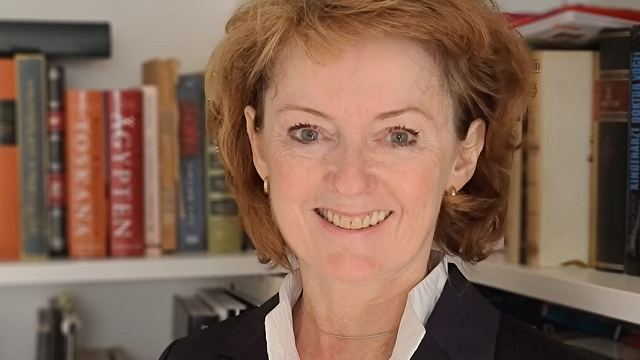-
QUALIFICATIONS
- For Linguists Worldwide
- For UK Public Services
- Preparation
- Policies & Regulation
-
MEMBERSHIP
- Join CIOL
- Membership grades
- NEW for Language Lovers
- Chartered Linguist
- Already a member?
- Professional conduct
- Business & Corporate Partners
-
ASSESSMENTS
- For Second Language Speakers
- English as a Second Language
-
EVENTS & TRAINING
- CPD, Webinars & Training
- CIOL Conference Season 2025
- Events & Networks
- CIOL Mentoring
-
NEWS & VOICES
- News & Voices
- CIOL eNews
- CIOL Awards
- The Linguist
- Jobs & Ads
-
RESOURCES
- For Translators & Interpreters
- For Universities & Students
- Standards & Norms
- CIOL & AI
- All Party Parliamentary Group
- In the UK
- UK Public Services
- Find-a-Linguist
Staying ahead of scammers: verifying legitimate translation project offers

By Carina Balbo
In my 25 years in the translation industry, I don’t think I’ve ever received as many scam emails as I have in the past few months. While many of us can spot an obvious scam, it’s clear that scammers are becoming increasingly savvy, presenting offers that can appear legitimate at first glance. As translators, we must stay vigilant, not only to protect ourselves but also to safeguard the reputation of our profession. And let’s not forget that language service providers (LSPs) are also targets of these schemes!
So, how can you ensure that a project offer comes from a legitimate client or a reputable LSP? Based on my experience as a translator and company owner, here are some practical tips to help you navigate the murky waters of fraudulent offers.
1. Scrutinise the initial contact
Most scammers make their intentions clear with poorly worded emails, but others might go the extra mile to mimic professionalism. Pay attention to details:
- email domain: check if the email is from a business domain (e.g., name@companyname.com). Free domains like Gmail or Yahoo should raise red flags unless there’s a reasonable explanation;
- sender details: cross-check the sender’s name and contact information online. If the email signature is vague or overly generic, proceed with caution.
2. Research the client or LSP
Before responding to an offer, take the time to investigate.
- online presence: does the client or LSP have a professional website? Look for key details such as a physical address, phone number, and VAT or company registration information;
- review platforms: if their website includes widgets for platforms like Google Reviews or Trustpilot, click on them to verify. Be wary of static images that lead nowhere, as these could be fabricated;
- industry memberships and partnerships: if the company claims membership with a professional body like the Association of Translation Companies (ATC), The Institute of Translation and Interpreting (ITI) or partnership with the Chartered Institute of Linguists (CIOL), check their status on the respective organisation’s website. Similarly, verify any ISO certifications they display.
3. Assess the offer
Scammers often use urgency to pressure translators into accepting projects without proper due diligence. Stay alert for:
- unrealistic deadlines: genuine clients understand the time and effort required for quality translation. Offers with tight deadlines and disproportionately high rates should prompt suspicion;
- payment terms: insist on clear payment terms. For new clients or high-value projects, consider requesting partial payment upfront. This is a common practice among professional translators and LSPs.
4. Use professional networks
Engage with professional associations, online forums, and social media groups to share experiences and stay informed. Many translators have flagged scams or unreliable clients in forums, which can help you avoid pitfalls.
5. Protect yourself legally
Always work with a signed agreement or purchase order that outlines the project scope, deadlines and payment terms. This document is crucial for ensuring accountability and can provide legal recourse in case of disputes.
6. Remember: scammers target LSPs too
As a company owner, I’ve seen firsthand how scammers also target LSPs. Fraudulent clients may request large-scale projects and disappear without paying, or individuals may pose as freelance translators with falsified credentials. Implement robust due diligence processes to verify the legitimacy of new clients and vendors alike.
Scammers are an unfortunate reality in our digital age, but with vigilance and a methodical approach, we can protect ourselves and our industry from their tactics. By conducting thorough research, leveraging professional networks and prioritising legal safeguards, we can ensure that every project we accept is both legitimate and rewarding. Let’s stay ahead of the game together.
Carina Balbo FCIL CL is the founder and Managing Director at My Language Hub. She is the Hon. Treasurer of the Association of Translation Companies (ATC), and internationally recognised language services ISO standards specialist.
Views expressed on CIOL Voices are those of the writer and may not represent those of the wider membership or CIOL.
More
The Chartered Institute of Linguists (CIOL), Incorporated by Royal Charter, Registered in England and Wales Number RC 000808 and the IoL Educational Trust (IoLET), trading as CIOL Qualifications, Company limited by Guarantee, Registered in England and Wales Number 04297497 and Registered Charity Number 1090263. CIOL is a not-for-profit organisation.








